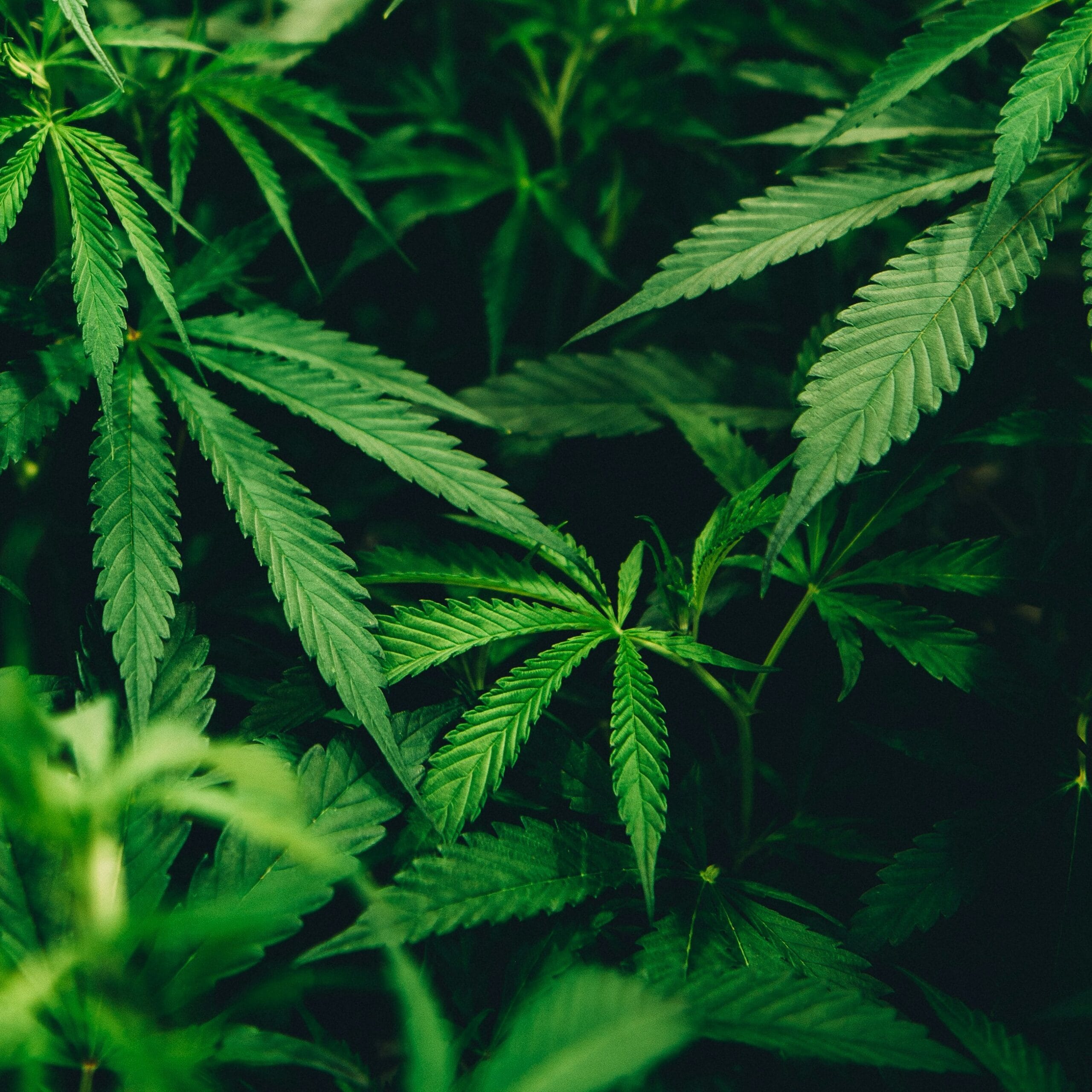Episode Transcript
[00:00:00] Speaker A: Welcome to Critical Defiance, the podcast that equips you for the intellectual brawl against the powers that be. I'm Nils, and with me is the inimitable Bobby Socks.
[00:00:11] Speaker B: Intellectual brawl. That's definitely a way to put it, Nils. And trust me, we're lacing up our gloves today because the news cycle has been coming at us like a heavyweight champion. From legislative haymakers to healthcare body blows, it's been relentless.
[00:00:29] Speaker A: Relentless is right. Bobby Socks. And her first big hit is a big one, the big Bad Bill. It isn't just a catchy name anymore. It's the law of the land.
We'll be dissecting its implications. And let's just say you shouldn't expect any warm fuzzies.
[00:00:45] Speaker B: Then we're wading into the literal hot mess that is the climate crisis.
We're talking Central Texas Florida floods meeting European heat waves. It's a global disaster flick playing out right outside our windows.
[00:00:58] Speaker A: And for those of you who appreciate a good narrative twist, or rather, the dismantling of a flimsy one, we're cracking open the Epstein files. It seems like the client list might be less smoking gun and more wet firecracker, given recent developments. We'll explain why.
[00:01:15] Speaker B: Finally, we'll unpack the persistent Trump effect.
Because whether you're a fan or, well, you're not, his policy fingerprints are everywhere.
And sometimes those policies feel less like governance and more like carelessly aimed lawn darts. There's a reason those things were banned, you know, we're talking tariffs, immigration, and the art of policy as a political weapon, all while turning ice into an army.
[00:01:46] Speaker A: So buckle up, rebels. This is Critical Defiance. And the fight for facts starts now.
So I guess the place to start talking this week is. Where's Bill? Yeah, we didn't we promise that he's not locked in the little room under the stairs or in my freezer. I guess we should start there.
[00:02:19] Speaker B: Yeah. He's not putting lotion on.
[00:02:21] Speaker A: Never mind. No, this week, Bill is off taking care of some car trouble. He drives a beautiful vintage Corvette that needs a little bit of tlc, so he's dealing with that. And scheduling was kind of rough. There's really no other day he could deal with it, so he's off doing that because real life happens sometimes, and that leaves me and Bobby in the studio alone to wreak havoc.
[00:02:44] Speaker B: Yeah. So Dad's vintage Corvette. It's a fun toy that doesn't tend to work all the time.
[00:02:50] Speaker A: It's a beautiful machine. It's just not a cooperative one.
[00:02:54] Speaker B: Oh, yeah, one of those Things that was meant to be Hot Wheels.
[00:03:00] Speaker A: Anyway, so what else is going on? We had a nice break. We had a two week break that turned into a four week break, which was a little bit rough on us. We had some craziness during the break. I guess I should recap what went on and what went wrong, Right?
[00:03:13] Speaker B: Yeah. Because you said we had a nice break and I'm just remembering the first.
[00:03:17] Speaker A: Two weeks, the sheer hell of the break.
[00:03:19] Speaker B: We had a long.
That was a break. I don't know if nice, but okay.
[00:03:26] Speaker A: So our break started with. We had planned a two week break for the end of June, going into July. But right before that break, we had a system manager that took down the website, the RSS server, all of the ways you could listen to the podcast, everything you could think of.
So we wound up spending almost 10 days fixing all of that stuff, which was neither easy nor cheap.
And at the end of it, everything was good until we started looking at the bills.
And honestly, this stuff can get rough.
[00:03:59] Speaker B: Yeah.
[00:03:59] Speaker A: So we had to make some changes and move some things around to get it under control so that we could actually continue to produce the show.
And once we got there, we were back to good.
[00:04:08] Speaker B: For the most popular belief, you can't just put in your AirPods and start a podcast. It takes equipment and services and things that cost money, because why not in capitalism.
[00:04:24] Speaker A: Yeah. And we'll get into that in another episode. I really want to do down the line how to put together a quick and dirty podcast on the cheap kind of a special.
So we're gonna do that one of these days. But in the meantime, just know that it was a little bit rough and we got through it. And by the time we got through it, we said, well, if we're skipping episodes, we should just make this our break. Okay.
[00:04:46] Speaker B: Yeah.
[00:04:46] Speaker A: All right.
But then more things went wrong because why not?
[00:04:53] Speaker B: Because there's more.
[00:04:55] Speaker A: I haven't been punished enough.
So we had another round of tech issues, website issues, and just generic issues that we had to fight through that took.
Got more time. And in the middle of all of this, we're trying to have lives and do things mixed up in all of that bobby socks. Had a great little outing there. You want to tell us about your trip?
[00:05:16] Speaker B: Oh, yeah. So I went to my first New York City Pride, which was just magical, honestly, Walking out of Penn Station, which doesn't look right anymore, they should have never renovated it. Anyway, walking out of Penn Station and into the city, it was like for a day, the entirety of New City was queer.
Pride was amazing. The parade was great. I was there near the front. There was confetti everywhere. It was like just the whole city, hundreds of people were just like, it's gay time. And.
[00:05:53] Speaker A: Yeah, yeah. It's the atmosphere. You're not just accepted, you're celebrated, you know?
[00:05:57] Speaker B: Yeah. And it was one of those rare times as someone with social anxiety, big crowds like that can freak me out. And it was one of those rare times where I walked into the city and felt more safe just because I saw my flags everywhere. Did that last the whole day? No, but that's why I went back home.
[00:06:17] Speaker A: And we had a visitor, too. We had Jack out during the whole thing.
[00:06:22] Speaker B: That was fun because you got to make everyone a little gayer.
[00:06:28] Speaker A: Yeah. And that boy did come back, like, 20% gayer, let me tell you. It was a little freaky foreign.
So we've got some big stuff for this week. We got some big stuff to talk about, and I guess I'm going to lead in with this one because I've been ranting about it for more than a week now. But the Big Bad bill is now a law. The big bad bell, a phrase that sounds like it came straight out of a super villain monologue. It's now officially law.
And just like any good super villain, this bill is set to wreak some serious havoc.
So there's a lot of things embedded in this bill that they're celebrating the passage of that are really, really horrible and don't immediately come into effect. You have to keep in mind that there's a lot of things in here that don't click into place until 2026, and that's so that they have a shot at winning the midterms.
[00:07:20] Speaker B: There is definitely a lot shoved in to one bill here, because talking to people about it, I keep hearing a lot of people say they're just so overwhelmed by how much was actually put into this bill.
[00:07:36] Speaker A: I think that was part of the point.
[00:07:39] Speaker B: Yeah. And a lot of people are almost just intimidated to try to look into it because, honestly, it's more stuff than should ever be put into a single bill.
And, you know, even people who packaged together, even people who have started to do the work, to read up on these bills that are being proposed and push through our.
What should be three. But it's turning into one branch of government.
This one really scares people. And sometimes it's just the near size of it.
[00:08:10] Speaker A: So we're going to try and do today is give you a summary of it. It's not going to be brutally Boring, because we're going to keep it short, sweet and to the point with each of the major topics that this bill covered.
So I guess where I want to start, the thing that's really irked me from the beginning is the huge, huge cuts to our social safety nets like Medicaid and sn.
[00:08:30] Speaker B: What was promised wouldn't happen on the.
[00:08:32] Speaker A: Campaign trail, what was promised wouldn't happen at several times during the negotiation of the bill happened. And that runs the risk of putting anywhere from 11 to 17 million Americans out of their health insurance. And a lot of these people don't even know, they don't realize it because the names of their Medicaid funded health plans are not Medicaid. They don't include the word Medicaid in the name.
So these folks that were backing this bill or for this bill didn't realize in a lot of cases that they were backing losing their own insurance or.
[00:09:05] Speaker B: Backing getting rid of their children's health insurance.
[00:09:08] Speaker A: The ramifications are pretty rough and the changes are going to be pretty stark. And then along with that, these guys have completely gutted the clean energy tax credits.
So renewable energy now is less accessible than it was and it's going to increase energy costs. There's no way around that.
This, coupled with the fact that the bill permits pathways for polluters to bypass environmental review and community input is completely terrifying when it comes to our environment.
And then in terms of our economy, we're looking at basically higher costs of living through higher healthcare, food and utility costs because of all of this.
So when you look at this bill, the economic side of this bill that by the way increases the national debt massively, we wind up realizing that this is the largest transfer of wealth from the working class to billionaires through tax breaks ever.
I'm going to say that again. This is the largest transfer of wealth from working class, yours and mine, to billionaires, them and theirs through tax breaks.
[00:10:25] Speaker B: This is disgusting. It, it's so hard for me to think of other words to attribute to this bill. Cuz it's just, it's harmful, it's inhumane.
And you know, growing up I was made to believe that I was in the middle class and I have been watching for my whole lifetime. At least the middle class gets smaller and smaller and smaller and shrink and it's like there's no upper class, upper middle class, middle class. Like no, we have everyone who's a paycheck away from not being able to pay rent. And billionaires.
[00:11:03] Speaker A: Yes. And you know, the middle class really is a myth. Even when I was a kid, my family felt they were middle class. But one of the things that I learned early on is according to the government, to be middle class, you had to be making 260,000 doll thousand dollars or more a year. We certainly were not.
Nowadays that number is upwards of 400,000 a year. So when they're talking about the middle class folks, they're probably not talking about you.
And you've got to keep that in mind because there's this illusion that we're all middle class that Americans tend to cling to, but we're not. The sad truth is, when you look at it from the top down, we are absolutely not.
And tax cuts for the middle class, incentives for the middle class don't necessarily apply to the working class. They're not the same thing.
[00:11:51] Speaker B: This whole bill is a complete betrayal of working families of the world class.
[00:11:56] Speaker A: Absolutely.
[00:11:57] Speaker B: A lot of the people who voted for it, it's just.
It's a real bold way for the administration to say that they don't care about people under a certain price point, basically.
[00:12:10] Speaker A: So, Bobby, what's number two on the list? What's your topic du jour?
[00:12:17] Speaker B: The wonderful disappearing act of the Epstein file.
[00:12:22] Speaker A: Oh, the Epstein files that Obama made up. I mean, this just keeps getting weirder.
The things coming out of this administration. Now it's Obama and Biden made them up.
[00:12:33] Speaker B: Oh, no.
[00:12:34] Speaker A: I mean, I know, right?
[00:12:35] Speaker B: Y' all remember all the buzz about the Epstein client list? The one Attorney General Pam Bondi said was sitting on her desk?
Well, apparently it's pulled a disappearing act worthy of an X Files episodes.
Yeah. We went from the files are on my desk to actually, there's no evidence of a client list. And we're all like, wait a goddamn minute. You don't make all that hype about having the list and then just say there's nothing.
[00:13:05] Speaker A: They were talking about how there was blockbuster information and the Epstein files, phase one binders were given to influencers not that long ago.
Those, as it turns out, were empty and just for a photo op.
And now the DOJ's determination, and I quote, no further disclosure would be appropriate or warranted, end quote, is based on victim protection. They're saying that to protect the victims, no further disclosure.
[00:13:33] Speaker B: That's. That's fucking rich. The discrepancies, we go with Bondi first stating, like, there's a whole client list that.
[00:13:43] Speaker A: She said it was on her desk.
[00:13:44] Speaker B: Yeah.
[00:13:45] Speaker A: Now she's saying she was referring to the entirety of the files.
[00:13:50] Speaker B: Yeah. Went from There's a client list on my desk with findings to. No, there's nothing important in here. Act.
[00:13:57] Speaker A: And we're not going to talk about this anymore.
[00:14:00] Speaker B: We're not going to talk about this. My God, if this was a YouTube series, it'd be the biggest letdown of the century. That channel would lose subscribers.
[00:14:09] Speaker A: We've gained conspiracy theories and so would the YouTube channel. I mean, the whole walk back, man, the conspiracy crowd's going nuts. It's great.
[00:14:17] Speaker B: Yeah. We have people like Alex Jones. He went from screaming about chemicals in the water turning the frogs gay to now he's yelling that Trump's on the Epstein listening. Yep, Absolutely beautiful.
[00:14:28] Speaker A: They're eating themselves alive.
[00:14:29] Speaker B: Yeah, it's a whiplash and a half, but I'm here to watch it set itself on fire.
[00:14:36] Speaker A: And then there was Elon.
[00:14:39] Speaker B: Oh, yeah, let's not forget about Elon. Also calling Trump out during their bromance breakup on Twitter.
[00:14:46] Speaker A: Yeah, yeah. So what is this all about, Bobby?
[00:14:48] Speaker B: What's happening here is narrative control and just straight out propaganda. This is holding people on the string of, yes, it's here, and then once everybody's paying attention, we flip it and no, it's gone.
This takes away public trust in government transparency.
It's a big thing particularly.
[00:15:11] Speaker A: And it feeds into the whole narrative of the deep state, you know.
[00:15:14] Speaker B: Yeah. Particularly given the initial promise of full disclosure.
[00:15:18] Speaker A: Yeah.
[00:15:19] Speaker B: Just if we thought conspiracy theorists were problematic before, this is only just made a spike and Netflix is going to have a field day when this documentary comes out.
[00:15:30] Speaker A: So to keep it rolling because there's other stuff going on in the world. You know, we've got the climate crisis rearing its ugly head. Like if anybody still needed a sign that the climate crisis isn't some far off abstract concept, Mother Nature has decided to send us a few concrete examples. In the last month, from Texas to Europe, it's been a stark reminder of what global warming actually looks like. And I think we should start with Texas because the tragedy there is just mounting. The numbers are still climbing, the number of people missing is still growing. It's horrifying what happened down there.
[00:16:03] Speaker B: A couple days after the initial flooding incident, I caught some footage on the news of first responders and how that girls camp was so incredibly impacted and how these kids were just asking first responders to find their friends and showing photos and it just. How do we. How do we let this happen?
[00:16:28] Speaker A: How do we let this happen? There was a lot of infighting over usage of the warning system. There were people who delayed their Response to the warning system.
There's the cuts to the budget, to the systems behind the warning system and then there's the cuts to the budgets at the National Weather Service and noaa. And then on the back end, there's cuts to fema. So after the tragedy, you know, you're kind of screwed there too. But hey, we've cut waste, fraud and abuse. So how did this happen?
It happened through a combination of stupidity and cheapness, Bobby.
[00:16:59] Speaker B: Yeah. Which is disgusting. I know. We've reached at least 100 deaths there now. And the number, like you said, is still growing. We're still looking for the missing, which also we should mention that it was about a week after the initial flood or less that they had to start pulling the search and response teams back because they were expecting another round of flash floods.
[00:17:25] Speaker A: Yeah, and flash floods are that, they are so fast you can't prepare. You need to just get on the roof, climb the highest tree. They're instant.
And people who've never experienced one don't get that. People who have gone through flash flood warnings but never seen one poo poo it.
But when it happens, it is the equivalent of a tidal wave in the middle of a land. It just boom, it's there. And the destruction is amazing. It's a force of nature that you're contending with. And you know, on top of all of this, we have to keep in the back of our heads that we've got an atmosphere that's warming. And a warming atmosphere has the ability to hold more moisture.
So the intensity and frequency of events like this is going to keep going up. So why the fuck we're cutting programs that study them or predict them as beyond me. But you were saying, Bobby, for my.
[00:18:18] Speaker B: Generation, if any of y' all remember watching the Al Gore video, any of y' all remember watching the Al Gore video on global warming and learning about greenhouse gases, the greenhouse effects, this is it. We're watching it happen. Unfortunately, it's really scary for me seeing it happen in Texas. And then we also have the European heat waves that are coming in and watching. What I was warned against as a child, when it comes to global warming having its funding pulled is disgusting. But the heat waves in Europe right now are record breaking and life threatening. And this is going on across much of Northern hemisphere.
[00:19:07] Speaker A: In Europe alone, there were 1500 heat related deaths. That's, you know, and, and then we have human induced climate change that's exacerbating high pressure systems that are trapping hot air and creating heat domes self perpetuating heat generator.
And we have to live inside these things and walk around and go, oh, this is normal. This isn't something we did. Climate change is a hoax. Give me a break, kids.
[00:19:34] Speaker B: No, this is the, like, perfect example of that dog sitting in the house on fire meme going, this is fine. Like, this is what the world's doing right now about, like, global warming, and it needs to stop. Especially that many death. That many deaths. What Was the number?
1500.
[00:19:53] Speaker A: 1500 so far this year.
[00:19:56] Speaker B: As someone who deals with heat sensitivity, I really can't imagine going out that way because people don't realize how much it's.
[00:20:03] Speaker A: How bad it can be.
[00:20:05] Speaker B: So between Texas and Europe, these are irrefutable examples and evidence of the escalating climate crisis. These are direct consequences of policies like things in the big Bad Bill that hinder clean energy, that underscore the urgency for meaningful action when it comes to the global clean climate crisis.
[00:20:31] Speaker A: So for our last big thought of the day, no matter what side of the political aisle you're on, you can't deny that when Donald Trump takes the White House, policy doesn't just get made, it gets weaponized.
So let's talk about the Trump effect and how it plays out from trade wars to border walls.
And I think where we need to start, really, is by defining the weaponization of policy. Yeah, these guys are doing what they claim previous administrations did and in fact, did not. They are using the government's authority, and they're using policy instruments to target their political opponents, to suppress dissent, and to advance a very specific, divisive set of agendas, mostly written by the Project 2025 folks.
So that's what we're talking about. We're talking about the fact that they are now taking the federal government and using it as a weapon against the people, against the society, against the culture, against individuals, against law firms, against media entities, against networks, against newspapers, you name it. And then on top of that, you've got a president who is so litigious that he will sue anybody who dares report on him in a negative fashion.
[00:21:42] Speaker B: Because those are the merits of a mature adult who should be running a country.
But speaking of weaponizing the government, weaponizing policy, we're also using tariffs as a weapon. Now, we had trade wars come from Trump's first administration back in 2016, and tariffs were used as a punitive measure against other countries, purportedly to protect American industries, but more often than not, with negative consequences for consumers and businesses.
Terrorists make things more expensive for Americans the way it's happening right now. The way it's being weaponized, the easiest way to boil it down is, damn, shit's gonna keep getting more expensive, and other countries aren't going to want to send us goods because they're gonna lose money on it. And it's just a big fun way to take material and wealth out of the country. We're not using terrorists for diplomatic engagement anymore.
[00:22:49] Speaker A: We're using them as a threat. We're basically saying, we will make your product too expensive for Americans to buy, and if you don't like that, then you'd better do what we say. And meanwhile, the Americans in the middle get screwed. And nobody wants to talk about that. And there's something wrong with that when we're the tool that's being weaponized against other countries because it's us, it's we the people. It's not tariffs. Tariffs affect us and our buying habits. So we're the tool.
And I can't believe anyone is okay with that.
[00:23:20] Speaker B: I think it's because we still have too many people who hear the word tariff and just immediately go, oh, we're taxing other countries, so it's more money for us.
[00:23:30] Speaker A: Right. That is not at all how it works.
[00:23:32] Speaker B: That's not how it works. Especially with how this administration is puppeteering tariffs right now. It's in a way that just hurts the American people over and over.
[00:23:47] Speaker A: And speaking of hurting people over and over, we've got to talk about their immigration policies. You want to talk about weaponizing things? Let's talk about immigration policy as a weapon. So far, we've been through the asylum restrictions and the family separation policies and the Title 42 expulsion policy of the Trump administration. But now we're working up to mass deportation.
And in order to get there, we've created this rhetoric that we've been invaded or that we're being invaded. We've deployed military personnel to the border.
We've deployed military personnel to places that they're protesting Trump's actions over immigration. It's getting crazy, guys. It's getting crazy fast.
And they've expanded these expedited removal agreements, which let local law enforcement act as immigration enforcement, and that has led to racial profiling left and right. So community trust is going out the window.
[00:24:42] Speaker B: Yeah, I feel like I'm with the way deportations and ISIS right now. I feel like I'm getting a taste of what the world was like right after 911 with racial profiling.
[00:24:55] Speaker A: It's going to get worse, though, because what we didn't have after 911 was the 13,000 new ICE officers that the big bad bill budgets for.
And that. That's some scary shit. We're going to have a larger immigration force than the Marine Corps.
They're going to be poorly trained, cranked out rapidly and running around in masks without id, taking people off the street.
I don't think that's going to go well for this country or in this country.
[00:25:27] Speaker B: Yeah, we're literally about to see peacekeepers, stormtroopers, whatever dystopian novel that you want to attribute them to.
[00:25:36] Speaker A: We're about to get them.
[00:25:37] Speaker B: That's what's gonna. I mean, we already saw it start in LA and now we just have too many. We basically have an SS being deployed. Not to mention the atrocities that are currently going on at Alligator Alcatraz.
[00:25:57] Speaker A: Yeah, yeah.
You know, it's unfolding as it unfolds. We need to watch it. We all need to be talking about it, and we can't let them get away with it.
A year from now, this country is going to have a national police force that answers to the whim of the President, not the law.
[00:26:13] Speaker B: We've said this multiple times in different ways, but, I mean, if you ever wondered what you'd be doing during that big historical event you read about, now's your chance, because we're living through that historical event. Be loud, tell people, keep an eye out for people. If you're not one of these people that, you know, ICE is targeting and profiling, and you have any way to use that privilege to protect others, do it.
[00:26:39] Speaker A: Do it. Absolutely do it. It's incumbent on you. It's your job as a human being.
[00:26:44] Speaker B: At this point, being a bystander is 1000% being part of the problem.
[00:26:49] Speaker A: Yep. So let's talk about takeaways. We've had a pretty wide ranging discussion this week. We got into some pretty heavy topics, some pretty interesting stuff. We caught up on what happened while we were gone, and not all of it was good.
Welcome to American politics in 2025. But what are some takeaways you would share with the audience? What are some things that you would spread the word on or drive home at the end of this episode to really pin it down?
[00:27:15] Speaker B: So the country is rapidly changing, and the only way we're all going to be able to survive and thrive during these absolutely absurd times is by adapting, evolving and engaging in the process. If not, we're going to be screwed.
[00:27:37] Speaker A: The big Bill, which is now the Big law, will have heavy downstream impacts on our society and we can prep for them now we can prep for the loss of health coverage. Now we can prep for the loss of energy credits. Now we can prep for higher prices. Now we can start putting money away. We can start planning ahead. We can start buying in bulk. We can start doing all the obvious, logical things.
But that's not the only thing going on.
[00:28:00] Speaker B: That isn't the only thing going on. And I will add just to Neil's last statement, we can also work in our communities and get more people aware of food banks in the area. We all know food's going to go up. Help each other look out for one another.
[00:28:16] Speaker A: It's time to start looking for community clinics.
[00:28:18] Speaker B: Yes. Things of that nature, and we know it at this point. The police state is coming and we need to be ready. ICE is the new Gestapo.
This is no longer an exaggeration. This isn't hyperbole. ICE is the new Gestapo. Acab always. But ICE is worse.
Be prepared mentally, and start looking into now what you can do to protect others.
Now's the time that we don't let them take away our neighbors in trucks and unmarked vehicles.
[00:28:56] Speaker A: Mm. We've hit a point where it's become obvious to a lot of us that Trump is an unstable leader who has things to hide.
And I think the Epstein X File scenario really underscores all of that. People are starting to notice.
Help them notice. Remind them that this is the guy who said he was going to give them the truth and make sure that in all this controversy surrounding what he's doing this time, they remember all of the other things that he's done that should have been controversial.
[00:29:26] Speaker B: Trump is very good at getting his followers to believe that he is going to do one thing and then do the exact opposite thing. But try to keep his followers believing that that was the plan the whole time.
Don't let him do this double thing, double speak.
[00:29:43] Speaker A: The truth is, we know it. And the disclosure that people want to see seem to be a matter of convenience and rhetorical trickery in this administration.
And the X Files of the Epstein case prove it. But again, call attention to it. Bring it to the light, make people notice.
So let's talk about some things we can all do. Bobby, what do you got for me back?
[00:30:05] Speaker B: Democracy.
And right now, this is serious. If you care.
Engage the other side. Does it all the time.
Get involved in your local politics, in your local government.
Put pressure on your reps and leaders. Use five calls. Email them, call them. Don't let them shy away or back down when they fail us consistently. They need to be replaced.
[00:30:32] Speaker A: And from where I'm sitting, it's time to get off your ass, pick a protest and get involved.
We can't be silent in these times. We can't be intimidated. We can't be told to sit down.
None of those things will do. We can't be silent.
Get off your ass and get moving.
[00:30:51] Speaker B: And keep the conversation going.
Even at home.
You don't have to blow up the Thanksgiving dinner table or anything like that when you have those family members still talking about why they're backing this administration.
Maybe ask them why. Maybe ask them if they cared about their health care or not.
[00:31:17] Speaker A: And that brings us to the end of another eye opening episode of Critical Defiance. We've unmasked the big bad Bill, felt the heat of the climate crisis, delved into the X Files of the Epstein case, and grappled with the Trump effect on policy.
Thanks for sticking with us this week.
[00:31:34] Speaker B: It's a lot to chew on, but that's what we're here for, to provide the tools to dissect the narratives and empower you to think critically about the forces shaping our world.
[00:31:45] Speaker A: Absolutely. And speaking of forces shaping our world, next time on Critical Defiance, we're going to pull back the curtain on something that's closer to home than many of us realize, the increasing militarization of our local police forces.
We're talking about MRAPs on Main street, blurring the lines between law enforcement and military might.
[00:32:06] Speaker B: That's right.
Join us for the thin blue line down Main Street, a police state primer. We'll explore how our neighborhoods are increasingly resembling war zones, the origins of this trend, and what it means for our civil liberties. It's a conversation you won't want to.
[00:32:25] Speaker A: Miss, because understanding the shift from protect and serve to something far more militarized is vital for preserving the very freedoms we champion on this podcast.
[00:32:37] Speaker B: Until then, stay defiant, stay critical, and keep questioning everything you've been listening to.
[00:32:45] Speaker A: Critical Defiance. We'll catch you next time.
[00:32:48] Speaker B: Your hosts and producers are Nils, Bill, and me, Bobby Socks.
Behind the scenes, the audio magic is woven by Niels and Jack, with crucial feedback and assistance from our associate producers, Tyler and Turbo.
[00:33:03] Speaker A: Our writers room is composed of everyone we just mentioned, with help from our friends Skeeter and Jimmy.
We couldn't do any of this without our incredible contributing members, who not only support us, but help steer the ship on episode topics and formatting.
[00:33:19] Speaker B: Finally, we'd also like to thank the Spacing Guild for travel considerations and lodgings.
[00:33:26] Speaker A: For more or to get involved, find us over@critical defiance.com that's a wrap.






